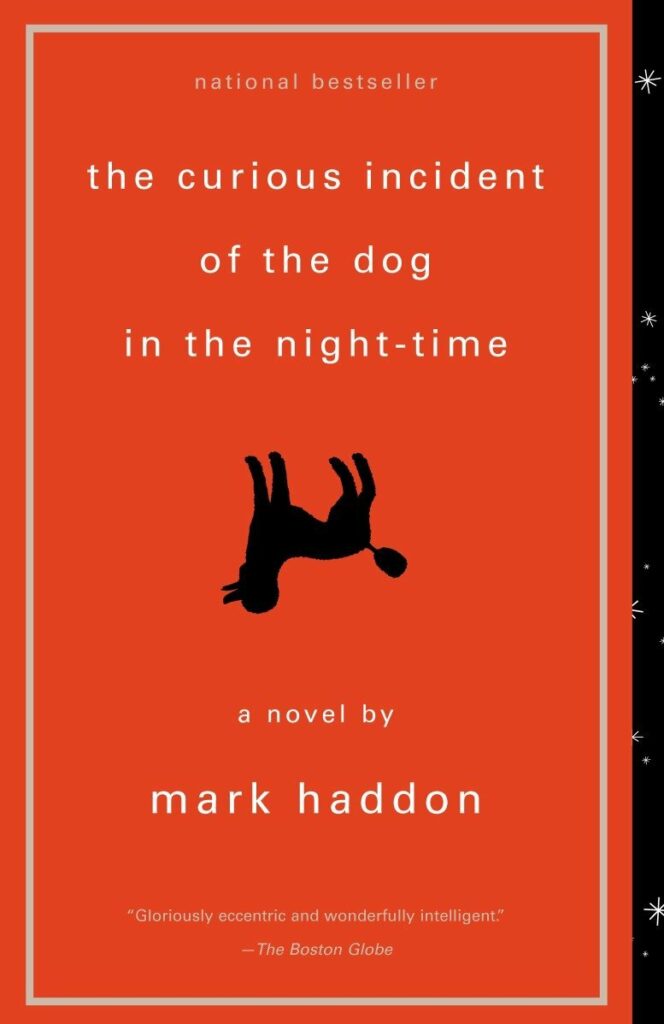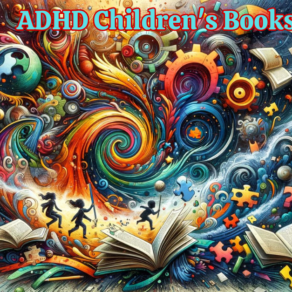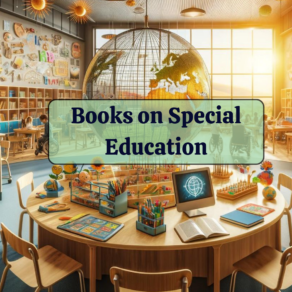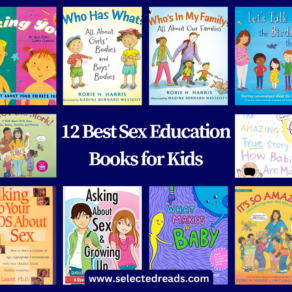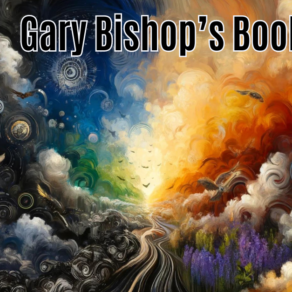Books about autism are the topic of our blog post today!
Navigating the world of autism can be a complex journey, whether you’re a parent, teacher, or caregiver. But what if I told you there’s a treasure trove of insights, strategies, and heartwarming stories available to make that journey a bit easier?
In today’s post, I’ve pulled together a list of impactful books on autism that are more than just informative—they’re transformative. I put in the legwork and scoured reviews to handpick titles that offer invaluable perspectives. We’re talking books that dig into everything from communication nuances to promoting independence for those on the spectrum.
So, if you’ve been on the lookout for reads that offer more than a cursory glance at autism, you’re in the right place. Sit back, scroll through, and let’s explore the power of the written word in shaping our understanding of autism.
Related: Best books on special education
Books about Autism
Here are our top picks for books about autism:
1. The Reason I Jump: The Inner Voice of a Thirteen-Year-Old Boy with Autism, by Naoki Higashida
Naoki Higashida offers readers an intimate look into the mind of a young individual living with autism. He gives you a lens into a world that many people only think they understand, breaking down preconceived notions. Through his narrative, you’ll find yourself re-examining not just how you perceive autism but how you perceive the world in general.
2. Thinking in Pictures: My Life with Autism, by Temple Grandin
Temple Grandin’s work is a pioneering exposition that transcends the typical narrative about autism. Published over two decades ago, this book still rings true today. It combines her unique experience as a person with autism and as a scientist, offering a dual lens that is both enlightening and groundbreaking.
She presents a new model that categorizes people by their thought patterns rather than just words. I was particularly captivated by how she dissects the differences between her wordless, picture-oriented thinking and those who think primarily in language. You can’t walk away from this book without feeling that you’ve gained a new and profound understanding of cognitive diversity.
3. An Early Start for Your Child with Autism, by Sally J. Rogers, Geraldine Dawson, Laurie A. Vismara
This is a practical, hands-on guide that feels like it was written with a lot of love and a deep understanding of childhood development. Drs. Rogers, Dawson, and Vismara have taken their extensive experience in early intervention to craft a book that empowers parents and caregivers. The focus here is on turning everyday activities into enriching learning experiences for kids with autism. From bath time to breakfast, the book provides actionable strategies that can be easily integrated into your daily routines.
4. Neurotribes: The Legacy of Autism and the Future of Neurodiversity, by Steve Silberman
Steve Silberman’s “Neurotribes” serves as both an investigative report and a history lesson. The book delves into the history of autism diagnosis, exposing how clinicians who were supposed to be helping the community were actually harming it by suppressing crucial information.
Beyond that, Silberman flips the narrative on its head by presenting autism, ADHD, and dyslexia as variations in human genetics, not as disorders to be cured or eliminated. His journalistic prowess really shines through as he uncovers why autism diagnoses have surged.
5. Uniquely Human: A Different Way of Seeing Autism, by Barry M. Prizant
Barry M. Prizant’s “Uniquely Human” offers an enriching viewpoint by advocating for “identity-first language” over “person-first language.” What caught my attention was the book’s focus on diverse identities within the autism sphere, giving a platform to autistic and neurodivergent voices. The takeaway here is to shift our understanding of autism from a medical model to one of social acceptance and inclusion.
6. Life, Animated: A Story of Sidekicks, Heroes, and Autism, by Ron Suskind
Ron Suskind delivers an emotionally charged account of his family’s journey with autism through the lens of Disney movies. Reading about Owen Suskind’s unique way of navigating the world was both heartwarming and eye-opening for me. Utilizing the power of Disney narratives to communicate complex emotions, the Suskind family shows us that stories are not just tales; they are tools for making sense of the world around us.
7. The Curious Incident of the Dog in the Night-Time, by Mark Haddon
If you’re looking for a captivating read with an unusual protagonist, Mark Haddon’s “The Curious Incident of the Dog in the Night-Time” doesn’t disappoint. I was struck by how Christopher, with his unique view of the world and lack of understanding of human emotions, turns into a kind of detective.
He’s hyper-logical but socially clueless, making his quest to solve the mystery of a dead neighborhood dog both poignant and surprisingly amusing. Haddon crafts a narrative that’s as much about navigating life on the autism spectrum as it is about solving a mystery. For anyone looking to see the world through different eyes, this is a must-read.
8. Look Me in the Eye: My Life with Asperger’s, by John Elder Robison
Robison tackles the complexities and quirks of his life with Asperger’s syndrome, from his awkward childhood to his adult years, in a manner that’s darkly comedic yet deeply human. The book really hit home for me when Robison talks about his struggles with social norms and his eventual self-awareness post-diagnosis. His trajectory from social deviant to a man who finds his own path, even designing exploding guitars for KISS, speaks to the unpredictability and potential within autistic lives.
9. In a Different Key: The Story of Autism, by John Donvan, Caren Zucker
“In a Different Key” serves as a comprehensive and affecting history of autism, capturing the resilience and advocacy of the autism community. John Donvan and Caren Zucker don’t just give us data and dates; they immerse us in the lives and struggles of people fighting for a better world for those with autism. The book addresses pressing questions about autism “epidemics,” vaccine controversies, and the history of treatments, some of which were downright detrimental.
10. Ten Things Every Child with Autism Wishes You Knew, by Ellen Notbohm
This book is a gem, both for parents who are new to the autism journey and for educators like us. Ellen Notbohm’s approach, sprinkled with humor and compassion, narrows down the top ten things to understand about children with autism. This isn’t a “one-size-fits-all” list; it’s more like a primer to make sense of the complex world of autism. I love how it centers on the child’s perspective, which can be a game-changer when it comes to effective communication and support.
11. 1001 Great Ideas for Teaching and Raising Children with Autism or Asperger’s, by Veronica Zysk, Ellen Notbohm
This book is like a treasure trove of strategies! What’s unique about this edition is its expansive range, including modifications for older kids and a special focus on Asperger’s challenges. It’s a super practical resource that can help educators and parents adapt to different learning styles and developmental levels. Definitely a must-have on your resource shelf.
12. More Than Words, by Fern Sussman
This guidebook, with its user-friendly format and research-backed strategies, is a game-changer for parents and professionals alike. I appreciate how it breaks down communication into manageable, everyday activities. This can empower parents to become more than just caregivers, but also effective facilitators of their child’s social communication skills.
13. Unstrange Minds: Remapping the World of Autism, by Roy Richard Grinker
“Unstrange Minds” is fascinating because it challenges the notion of an ‘autism epidemic.’ It explores how autism diagnoses are influenced by culture as much as they are by science. It’s a thought-provoking read that nudges you to look beyond the headlines and dive deeper into the nuances of autism awareness and treatment globally.
14. What Autism Gave Me: A Devastating Diagnosis To A Triumphant Life, by Michael Haigwood Goodroe
This memoir is both humbling and empowering. Michael Haigwood Goodroe doesn’t sugarcoat the struggles he faced; instead, he transforms them into a journey of resilience and triumph. It’s a testimonial to the indomitable human spirit that persists despite setbacks, offering a dose of inspiration for anyone touched by autism.
15. Maria and Me: A father, a daughter (and Autism), by Miguel Gallardo
I was completely charmed by “Maria and Me.” It’s a light-hearted yet impactful comic that offers a dad’s perspective on life with his autistic daughter. The book’s illustrations and dialogues capture both the joys and challenges that come with a family holiday, offering an intimate look into Maria’s world. It’s heartwarming, funny, and a gentle reminder that every individual with autism has their unique way of seeing the world.
Final thoughts
This list of books on autism is a goldmine for anyone—be it parents, educators, or folks who just want to better understand the autism spectrum. These books serve multiple purposes: some arm you with practical tips, some challenge prevailing norms, and some offer deeply personal insights. But the thread tying them together is the focus on understanding and empathizing with people on the autism spectrum. The more we read and learn about autism, the better equipped we are to make meaningful changes—in our classrooms, in policy, and in societal attitudes.










